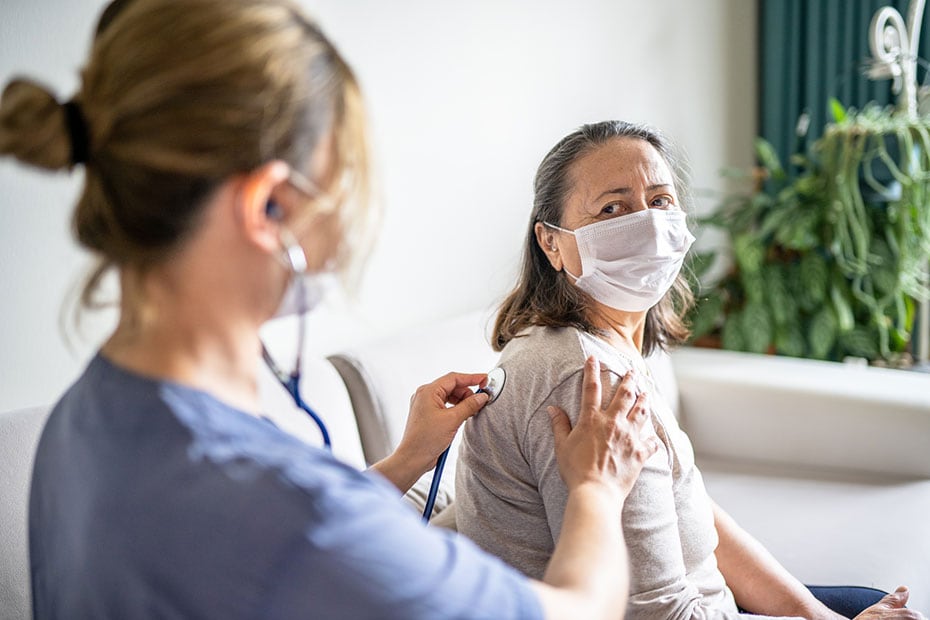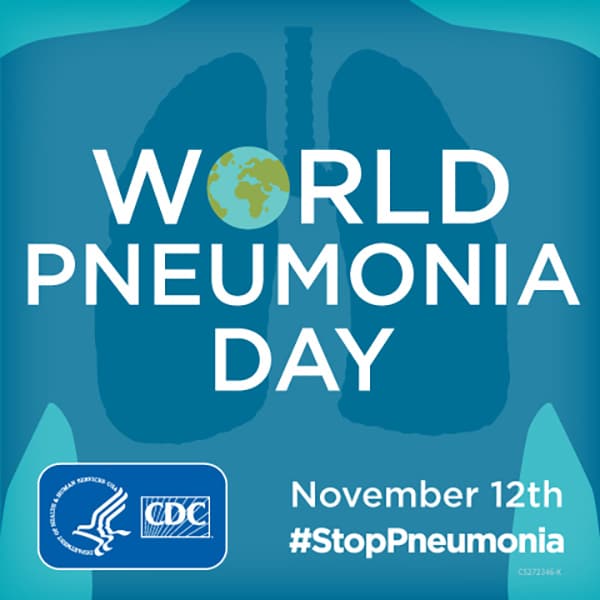Pneumonia Can Be Prevented—Immunizations Can Help

Pneumonia, an infection of the lungs, needlessly affects millions of people worldwide each year.
Pneumonia can often be prevented and can usually be treated.
Lower your risk of pneumonia with immunizations and other healthy living practices.
Most of the people affected by pneumonia in the United States are adults. CDC data show more than 47,000 people died from pneumonia in the United States during 2020. Immunizations and appropriate treatment (like antibiotics and antivirals) could prevent many of these deaths.
Lower your risk by getting immunized
In the United States, immunizations can help prevent infection by some of the bacteria and viruses that can cause pneumonia. Learn more about who is recommended each of these immunizations:
- COVID-19
- Haemophilus influenzae type b (Hib)
- Influenza (flu)
- Measles
- Pertussis (whooping cough)
- Pneumococcal
- Respiratory syncytial virus (RSV)
- Varicella (chickenpox)
These immunizations are safe, but side effects can occur. Most side effects are mild and go away on their own within a few days.
See the vaccine information statements to learn more about common side effects of specific vaccines. See the immunization information statement to learn more about common side effects of RSV preventive antibody immunization.
Encourage friends and loved ones to make sure they are up to date with their immunizations.

World Pneumonia Day is observed each year on November 12th. Globally, pneumonia killed more than 740,000 children younger than 5 years old in 2019. This is greater than the number of deaths from any infectious disease, such as HIV infection, malaria, or tuberculosis.
Learn more about global pneumonia from Emerging Infectious Diseases.
Protect your health with these healthy living practices
Avoid people who are sick. If you are sick, stay away from others as much as possible to keep from getting them sick.
You can also help prevent respiratory infections by:
- Washing your hands regularly
- Cleaning and disinfecting surfaces that are touched a lot
- Coughing or sneezing into a tissue or into your elbow or sleeve
- Limiting contact with cigarette smoke or quitting smoking
- Taking good care of medical conditions (like asthma, diabetes, or heart disease)